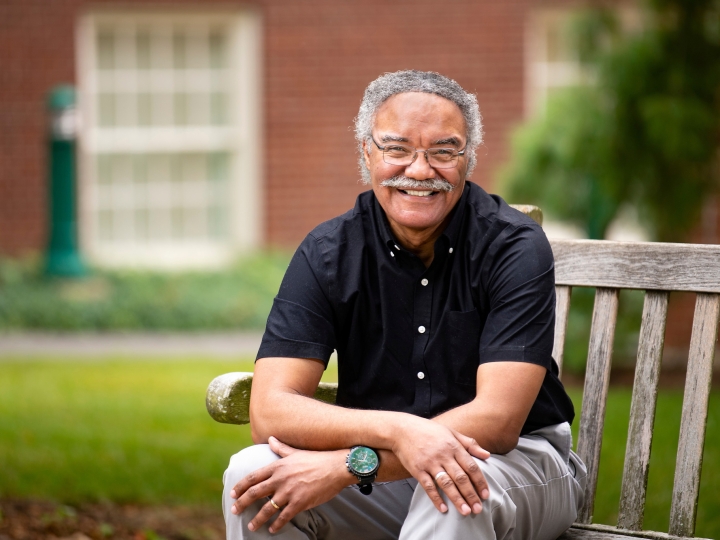
Courtney Burns, Political Science
October 21, 2020
Professor Courtney Burns' case studies zoom in on top female politicians such as vice presidential candidate Kamala Harris. Photo by Emily Paine
Bucknell students really want to sit down with current issues — whether it’s gender stereotypes in politics or trade wars between nations — and truly apply what they’re learning in the classroom. That’s something I love to see.
Women are holding more seats in national governments than ever before, with a record number of women now serving in the U.S. Congress. But despite the gradual uptick worldwide, female heads of state have been few and far between in modern history compared to males. It's a disparity that Courtney Burns, political science, theorizes comes down to gendered ideas of power and authority.
While male leaders are respected and praised for displaying stereotypically male characteristics like aggression and competitiveness, female presidents and prime ministers are often highly criticized for the same demeanor. On the other hand, embodying traditionally feminine traits like compassion, honesty and vulnerability can cast women leaders as "weak" or "incapable."
"We call it the political double bind, where women in power face negative consequences of acting either too masculine or too feminine — a dilemma that men don't encounter," says Burns, whose research zooms in on how this catch-22 affects the policy choices of top female leaders.
When it comes to human rights policies, for instance, Burns says women tend to fulfill feminine stereotypes and therefore have more successful track records compared to men. But they also face higher rates of domestic terrorism and are likely to garner harsh criticism when opting for combative or forceful responses. In her case studies, Burns analyzes decisions of leaders like past Filipino President Corazon Aquino and Vice President Kamala Harris, the latter of whom has been forced to walk the line between being likable and interrogative.
"The big takeaway from studying how these figures wield their power and the public response is that gender stereotypes still greatly affect women in government worldwide," says Burns. "Textbooks don't always shine a light on how influential these perceptions are, especially when considering why so few women have held top positions."
Where course materials might gloss over gender, students in Burns' classes are challenged to use feminist lenses to evaluate at past, current and developing political landscapes. They also get hands-on experience putting their decision-making to the test through simulations on free trade and armed conflict. In Burns' civil-military relations course, groups representing a fictional nation's armed forces, legislature and business sector strategize under pressure to determine whether or not to stage a coup (and they almost always do).
It's one of the fun, engaging ways Burns works to make macro political concepts tangible, by "bringing the global local."
"It's important that students realize that these big situations and events that seem far away actually affect us on a day-to-day basis," she says. "That's where I see them get the most impactful education, by taking concepts like leadership and power and transforming them into something students can put their hands on."

